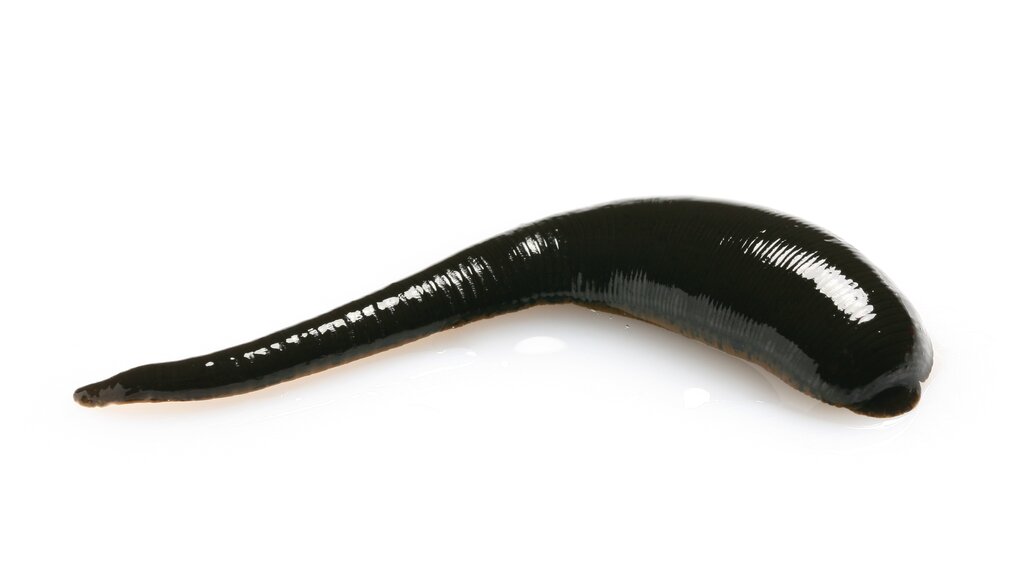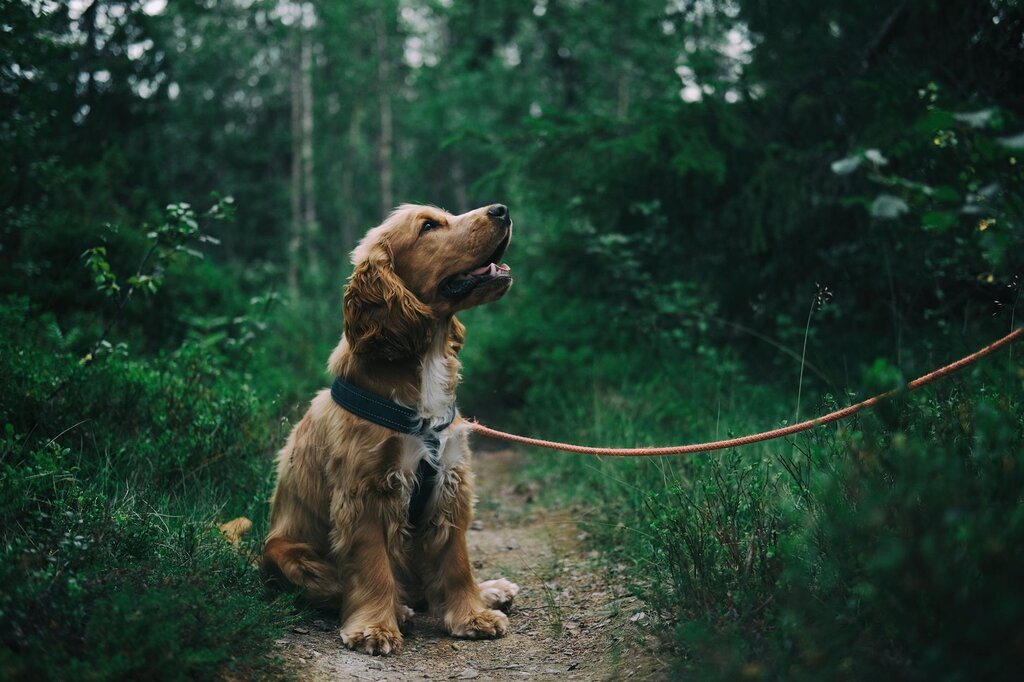Last Updated: 17/06/2025
Leeches on Dogs
Do you enjoy hiking with your dog? Take a read through our Vet-written article for all you need to know about protecting your dog from leeches.
Author: Dr Brittany Ward BVSc
Reading Time: 13 minutes - short read
We know that Leeches are something to protect ourselves against when we go out hiking. Your dog, who is closer to the ground and probably not wearing hiking boots, is highly susceptible to picking up a Leech on your adventures. With a wet year behind us and another rainy Summer predicted ahead of us, Leeches are becoming very common on our pets. So what risk do they pose to your dog?
What Are Leeches?

Leeches (Hirudinea) are a black, shiny, muscular, segmented worm that is closely related to the Earthworm! Unlike the Earthworm, Leeches are known for attaching themselves to a host and feeding on blood. They are ectoparasitic, meaning they attach themselves to the outside of their host. They have an oral sucker and tail sucker that they use to attach to their host. There are usually 2-3 rows of very tiny teeth in their oral sucker that help them feed.
Where Are Leeches Found?
Leeches live in damp areas or watercourses, so can be found anywhere in Australia that is damp. This means there are a lot of them around at the moment due to all the rainy weather and flooding. Your dog will most likely pick them up when swimming or hiking, but they could pick them up in your backyard as well. They are absent from all arid areas.
Why Are We Concerned About Leeches?
After attaching to the skin or mucosa, Leeches secrete an anticoagulant called Hirudin. This anticoagulant prevents their host's blood from clotting so they can engorge themselves. Once full, Leeches will detach by themselves, although the anticoagulant can cause spontaneous bleeding from the location they had been attached. Usually the blood loss is not enough to be concerning, but heavy Leech burdens may cause anaemia in small dogs.
If Leeches attach to sensitive and hard to access locations like noses, eyes, ears and genitals, then detaching them could cause damage to these locations. Eyes are especially susceptible to damage. The wound they leave behind is also susceptible to infection from the environment or bacteria in the worm itself.
How Do You Prevent Leeches On Your Dog?

There are no products officially registered for the prevention of Leeches in dogs. The products Musca-Ban and Troy Chloromide Spray contain some ingredients commonly used in human Insect and Leech repellents or with proven Leech repellent properties: Di-N-Propylisocinchomeronate, N-Octyl Bicycloheptene Dicarboximide, and Citronella Oil in Musca-Ban.
You can also increase your dog's level of protection by covering them up, such as jackets and boots.
Top Recommended Leech Preventatives
What Should You Do If Your Dog Has A Leech?
With there being no guaranteed preventative for Leeches, you're going to need to know what to do if you find one on your dog. You have two options: Leave it and it will fall off by itself in 20-30 minutes or remove it.
If you choose to remove it, you can use a flat solid object like a credit card, driver's licence or fingernail to scrape between your pet and the Leech's, causing it to detach. Alternatively, you could carefully pull it off or apply salt to the Leech to make it drop off. Try not to squeeze the Leech when you remove it as this could cause the Leech to regurgitate, which can introduce bacteria to the wound.
Once the Leech is removed, wash with warm water and apply pressure to the attachment site with a cotton ball until bleeding stops.
Should You Take Your Dog To The Vet? If your dog has a heavy Leech burden, Leeches in sensitive or hard to reach locations, their bleeding doesn't stop or you are concerned about your dog, then you should take them to the Vet.
Can Cats Get Leeches?
Cats rarely get Leeches because they are fastidious groomers, however, a cat with outdoor access that has been in a damp backyard could still pick up Leeches. Make sure you check through their fur for any unwanted hitchhikers or wounds.
Further Reading
Want to read more? Check out our other articles:
History
Our experts continually monitor the health and wellness space and we update our articles when new information becomes available.
Thu Dec 29 2022
Written by Dr Brittany Ward BVScDr Brittany Ward BVSc
Veterinarian
Dr. Brittany graduated from James Cook University in 2019 with a Bachelor of Veterinary Science and started working in her home town in the Wide Bay-Burnett Region. She has always been excited about working in the veterinary industry, but over the last few years has grown especially fond of dog behaviour and training, surgery and orthopaedic disease.

